|
||||
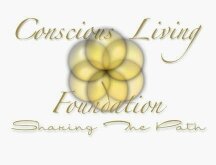
- Issue 103 -

- Issue 103 -
Published by The Conscious Living Foundation
E-mail:
Home Free Downloads Quotations Products Free E-Books
|
Welcome to Conscious Living, our newsletter designed to share our current activities and growth, along with articles and information that we hope will be supportive and encouraging in your efforts to live each moment with more joy and satisfaction.
In this new issue, we are excited to present the fourth chapter of "The Third Eye" by T. Lobsang Rampa, a fascinating, controversial and very popular account of the life and esoteric experiences of a Tibetian Monk. In addition, we are offering the next chapter of "A Romance of Two Worlds" by Marie Corelli. This best selling Victorian novel explores the relationship between the occult and Christianity, plus a discussion of guardian angels and life after death along with mystery, romance and tragedy. We are also continuing with our series of selections from Kahlil Gibran's masterpiece, "The Prophet". This issue's selection is entitled, "On Pain". We are pleased to present an article by Paramahansa Yogananda entitled "Encounters In India" in which the famous Swami tells of some of his experiences while meeting other mystics and savants. We continue with a new essay by Ernest Holmes, in which he asks "Are You Being Controlled by The Suggestions of Others". As always, Dr. Holmes' thoughts are empowering and encouraging. We also continue our exploration of 12 Step Programs and their ability to support personal and spiritual transformation. We're pleased to offer two articles for your consideration: First, "How The 12 Steps Work" along with "12 Step Affirmations" a wonderful collection of one sentence power thoughts useful for everyone regardless of their tradition or field of interest. If you enjoy our free E-books, videos and audios, we urge you to visit the Downloads section of our website. We have just added a large number of important and interesting new products. They will provide hours of new informative inspiration and encouragement; at no charge of course. We're also offering a new essay entitled "Gratitude"; an excellent exploration of the results of an attitude of giving thanks by the author of "The Science of Getting Rich", along with two wonderful articles - one the real-life story of a young man in Africa - "William's Windmill" and a report of a scientific study entitled "Charitable Monkeys Show Empathy". As usual, our newsletter also includes an article by one of our most thought-provoking writers, Steve Roberts and his new essay, "The Beautiful Future of Eliot Spizter". Finally, we are offering a 10% discount on all the products in our catalog - using a special code only contained in this issue of our newsletter. This significant savings can be applied in addition to all the other discounts that are currently available. This special discount is not being offered elsewhere and will not be repeated in subsequent newsletters. Get all the details below. As always, we are so grateful to all of you who visit our website, and contribute through your generous donations, purchases, emails and article submissions. Thank you for letting us share this issue of our newsletter with you. William Simpson |
|
| Serial: The Third Eye by T. Lobsang Rampa | |
|
|
Please be assured that your email address will not be sold, rented Essay: Are You Controlled By The Suggestions of Others? by Ernest Holmes |
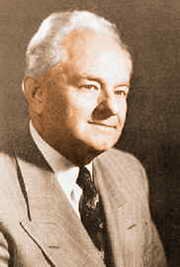
NEARLY all people are controlled by outer suggestions, and not by inner realizations. Ordinarily man thinks only what he sees others do, and hears others say. We must all learn so to control the inner life that outside things do not make an impression upon our mentalities. As we are thinking beings, and cannot help thinking, we cannot avoid making things happen to us, and what we need to do is so to control our thought processes that our thinking will not depart from the realization of that which is perfect. Man is governed by a mind which casts back to him every thought he thinks; he cannot escape from this and need not try; it would be useless. The laws of mind are simple and easy to understand. The trouble with us has been that we have laid down great obstructions, and then have tried to overcome them. Stop trying, stop struggling, Learn to be calm, to trust in the higher laws of life, even though you do not see them; they are still there. Did you ever see the law that causes a plant to grow? Of course you did not, and yet you believe in this hidden law of growth. Why do you believe? Simply because every ear, out of the seed time comes a harvest. Shall we not have as great faith in the higher laws of being? To those souls who have dared to believe has come as definite an answer as came to those who believed in receiving a harvest from the planted seed. This law is, and if we would see results we must use it; that is, we must provide the mental receptivity that will prepare us to accept the gift when the Spirit makes it. This receiving is a mental process, a process in which we lose all sense of limitation. If you wish to demonstrate prosperity, begin to think and talk about it, and to see it everywhere. Do nothing that contradicts this thought either mentally or physically. The world is full of good; take it and forget all else. Rise above depression and be glad that you are saved from adversity; the human mind needs to be cleansed from the morbid thoughts that bind through its false beliefs. No living soul can demonstrate two things at the same time, if one contradicts the other. There is no way except to let go of all that you do not wish to come into your experience, and, in mind, take all that you do wish.
SEE, HEAR, TALK ABOUT, AND READ ONLY WHAT YOU WISH, God knows good only, and when we are in line with good He knows us; when we are out of harmony with good, we say, “God has forgotten us.” On the one hand we have an Infinite Intelligence which has brought us up to where we are to-day; and having done all that it can for us now lets us alone to discover our own nature. On the other hand we have the Infinite Law — which is an activity of God and we can use it for what we will, only with this provision, that, in so far as we use it for the good of all, are we protected. The law obtains through all nature that as a man sows, so must he reap. Now the Father has brought us to where we can understand life, and we must go as we choose. If we are in harmony with the great forward movement of the Spirit, there is nothing that can hinder our advancement; if we oppose it, somewhere along our pathway it will crush us. As with individuals so with nations; in so far as they work with a right spirit they prosper; when they begin to fail in the use of this law they begin to fall. He who understands will take the position of one who wishes to work in union with the Power of Good; and to such an one will come all the power that he can conceive of and believe in; his word becomes in expression as the very word of God, and he must realize it to be all powerful. So the one who is truly united with Good will wish to express only the truth for all; and in doing so he is working along the lines of the unfoldment of the Spirit, and though he may seem to fail, from the ordinary standpoint, yet his success is assured; for he is at one with the only ultimate power before which, in time, all else must fall. The Conscious Living Foundation is proud to offer its recording of one of Ernest Holmes most famous books, "Creative Mind and Success". To learn more about the recording and hear several FREE selections on such topics as: - How to attract friends Just click Here. We are also pleased to announce the recent release of "Affirmations of Ernest Holmes" - a collection of 20 of Dr. The affirmations cover a wide range of topics from healing and excellent health, to increased abundance and prosperity, to a greater sense of unity and oneness with Spirit. These affirmations have been practiced by hundreds of thousands of people for decades and have been found to work with great effectiveness. To hear several free samples from this wonderful recording, please click Here. If you enjoy our inspirational stories and articles, be sure to visit our website for more: |
|
Affirmation: (Selection from The Conscious Word Daily Affirmation) |
|
|
News: A New Collection of Bath and Body Products
 The Conscious Living Foundation is pleased to announce a new collection of healthy bar soaps, "SoapOne" - soap products with spirit. Available now at a special introductory price.
The Conscious Living Foundation is pleased to announce a new collection of healthy bar soaps, "SoapOne" - soap products with spirit. Available now at a special introductory price.
SoapOne products are designed with harmony and beauty in mind. One hundred percent vegetable soap with essential oils - the primary ingredients are: Palm Nut Oil, Palm Oil, and Palm Butter. Our new products are circular in shape and come in four unique flavors: Allure, Bloom,  Reflection and Serenade. To find out more, click Here.
Reflection and Serenade. To find out more, click Here.
To see our full line of soaps, body scrubs, hand creams, room sprays and  body creams, please click Here.
body creams, please click Here.
To visit the Bath and Body section of our catalog, which contains a wide variety of Bath Gift Sets, Perfumes, Women's Pajamas, Bathroom Decor Sets, Pillows, Head and Hair products and Cosmetics - please click Here.
Essay: The Beautiful Future of Eliot Spitzer (Applying The 12 Steps) by Steve Roberts
|
If there is one group besides aspiring saints from whom former New York governor Eliot Spitzer will find empathy for his recent swan-dive into self-destruction it’s recovering addicts. Being one myself for the past 20 years, I’ve had the privilege of hearing (and telling) all manner of horror stories stemming from the insanity that is the heart and soul of addiction. Stories as equally absurd and painful as, “I became governor of New York as the champion of moral rectitude only to start paying as much as five K a pop for prostitutes,” are as common as coffee at just about any Alcoholics Anonymous meeting I’ve attended. As is the response from those fellow addicts who’ve been recovering long enough to know what they’re talking about. “Makes sense,” they’re likely to say. “What do you expect?” they’re likely to say. “Craziness and addiction go hand in hand.” “Welcome to the club,” they’re likely to say. And as they speak they’re smiling with understanding. Humankind’s growing experience with addiction reveals its presence in just about every single one of us. This isn’t new news, really. Attachment, said the Buddha, is the root of all human misery. And in essence, attachment is addiction. It doesn’t matter whether our preferred drugs include alcohol, pot, coke, crack, smack, meth, nicotine, sex, sugar, power, tidiness, revenge, gambling, a gang, eating, being a victim, self-hatred, making money, skydiving, keeping a schedule, patriotism, or having the world tell us how wonderful we are—the first rule of addiction is that, when it comes to making healthy choices, all bets are off. What is a healthy choice? One that grows kindness, compassion and understanding. It’s not that an addict is always going to make a destructive choice; it’s that he or she can’t be counted on (by others or themselves) to make a loving one. While addicts can be sociopaths, addiction, in itself, is not an absence of moral character, no matter how devastating its consequences. Addiction is that compulsion or fixation about which, given the right circumstances (for some of us amounting to no more than waking up in the morning), there is very little, if anything, we will not sacrifice to satisfy. In the extreme, that sacrifice can include the trust of those we love. Announcing his resignation as governor, Mr. Spitzer said his first priority was healing his relationship with his family. It sounds good, but a sober old-timer might tell him that’s just another way his addiction is talking. When I finally awoke to the reality that my life had become unmanageable and I needed to do something about it, I heard quickly from many voices of experience that it wasn’t my relationship with my family I had to pay attention to; it was my relationship with me. “You get so you can trust you, and the rest will take care of itself,” my AA sponsor said. He wasn’t implying that, sooner or later, my family was going to trust me. He meant that their trust was their business (and maybe it would never come); my business was learning to trust myself to live a healthy life. I can’t speak for what Mr. Spitzer faces in healing his life, but for me it’s been a long, deliberate process—humbling, often painful, moving through fear upon fear, learning to forgive and to love myself. Yet, as once I lived with unending despair, since day one of recovery I have lived with unending gratitude. The first year was like having survived a plane crash. Two decades later I continue to remove the veils of delusion that separate me from the boundless potential inherent in being human—and as each veil drops, there is more light with which to see the beauty of who I really am; indeed, who all of us really are. Like many addicts, Mr. Spitzer is a man of considerable talents. Should he choose to embrace his so-called public ignominy as an opening for self-discovery, what he learns, and how his life evolves from it, could be a source of considerable service to not only himself and those close to him, but also to the world at large. And should that occur, fellow addicts who’ve been recovering long enough to know what they’re talking about will smile with understanding. “Makes sense,” they’re likely to say. “What do you expect?” they’re likely to say. “Amazing, beautiful things go with the territory.” “Welcome to the club,” they’re likely to say.
To find out more about Steve, see examples of his stone sculptures or read a chapter from his book, click Here. Steve Roberts is the author of Cool Mind Warm Heart, a collection of essays, stories, and photographs of stone sculptures he builds on his Vermont farm. He can be found on the web at CoolMindWarmHeart.com and at TheHeartOfTheEarth.com. If you enjoy our inspirational stories and articles, be sure to visit our website for more: |
| News: The Conscious Word and Conscious Wisdom are Now Available With A 2 Week FREE Trial |
|
The Conscious Word is an email newsletter sent directly to you each day. Each issue contains an inspirational affirmation designed to help uplift your spirits and support your conscious efforts at personal and spiritual growth and development. By practicing the affirmation which we email to you, for 3 to 4 minutes a day, you create an effective tool that will help you experience an ongoing positive change in your life. We all “know” many things. However, “knowing” something, in and of itself, does not make it “true” to us. We can read all about oranges; we can look at pictures of oranges and we can talk to people who have eaten oranges. But, until we taste the orange ourselves, we do not truly understand the full truth about what an orange is. Likewise, we can experience the “truth”, the real nature, of many more subtle and essential concepts by “tasting” them. One of the capabilities of an affirmation is to provide us with a “taste” of the subject matter of the affirmation. However, something else is also at work in an affirmation. One of the secrets of the universe is that when a human believes something is so, it becomes what he or she believes. Jesus said “Verily I say unto you, if ye have faith and doubt not, ye shall not only do this which is done to the fig tree, but also if ye shall say unto this mountain, `Be thou removed and be thou cast into the sea,' it shall be done. And all things whatsoever ye shall ask in prayer, believing, ye shall receive.” (Book of Matthew verses 21 and 22) The key words in this quote are “If ye have faith and doubt not..” and “all things whatsoever ye shall ask believing..” Jesus is describing this receptivity of the universe to human belief. However, there are requirements for this belief to be effective. Jesus says we must have “faith” without doubt and that we must “believe” as we ask. James Allen’s famous premise “As a man Thinketh, so it is” expresses this same truth. In essence, when we become utterly convinced of the truth of something, which means we have absolutely no doubts about it, the universe will be molded and shaped to match our conviction. The challenging part is to find a way to become convinced of something that is not yet actualized. To cultivate our faith. This is where affirmations can help. By taking a thought or collection of thoughts and impressing them deeply upon the mind with persistence and concentration, a conviction can be cultivated. Developing our own personal convictions, especially about ourselves, and then deepening and persisting in those convictions is a major key to our health, happiness and success in life. For More Information, an example issue and A Two Week Free Trial, Click Here. After your 2 week free trial, our normal subscription rate is $3.50 each month.
In addition, CLF is pleased to announce the introduction of our newest Daily Conscious Wisdom is an email newsletter sent directly to you each day. Each issue contains inspirational guidance and wisdom designed to help uplift your spirits and support your conscious efforts at personal and spiritual growth and development. We're offering a Two Week Free Trial subscription, so that you can experience personally how Conscious Wisdom can help change your life. The regular monthly subscription costs $3.50 each month. For More Information, an example issue and A Two Week Free Trial, Click Here. |
| News: Gift Certificates Now Available - Give the gift of Spiritual Inspiration and Renewal |
 Consider a Gift Certificate from The Conscious Living Foundation. What better gift to give friends and loved ones than the gift of new hope, inspiration, encouragement and upliftment? If you are considering buying a gift, why not let your loved ones select something that can genuinely make a difference in their lives? Consider a Gift Certificate from The Conscious Living Foundation. What better gift to give friends and loved ones than the gift of new hope, inspiration, encouragement and upliftment? If you are considering buying a gift, why not let your loved ones select something that can genuinely make a difference in their lives?
Your Gift Certificate can be printed out for your personal delivery, or it can be emailed directly. Our Gift Certificates are available in denominations from $5.00 to $1,000 and every product in our catalog is available for purchase with our CLF Gift Certificates. Click Here for more information. This time give the gift of a deeper spiritual life and increased personal growth. |
|
|
|
Please be assured that your email address will not be sold, rented
or given to any other organization or individual. We respect your privacy.
| News: Charitable Monkeys Show Empathy |
|
THE GUARDIAN, LONDON
Monkeys enjoy performing charitable acts and are capable of empathizing with members of their own species, US researchers said. |
| News: New Product Line Added To Our Catalog: Spiritual Classical Music |
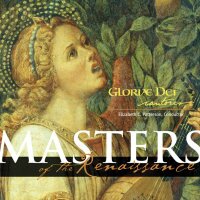 The Conscious Living Foundation is pleased to announce that we have added an entirely new category of music to our product catalog. In addition to our wide variety of New Age music CDs and Cassettes, we are now offering a variety of classical recordings of the very highest quality. The Conscious Living Foundation is pleased to announce that we have added an entirely new category of music to our product catalog. In addition to our wide variety of New Age music CDs and Cassettes, we are now offering a variety of classical recordings of the very highest quality.
This expanding selection of recordings are primarily performances by the acclaimed choral group Gloriae Dei Cantores. You will find selections by Renaissance masters, sacred music of Russia (including numbers by Rachmaninoff and Tchaikovsky), Palestrina, Brahms and Mozart. In addition, there are more traditional spiritual songs such as Amazing Grace, What A Friend We Have In Jesus and Simple Gifts. As always, free audio samples from each album are available for your download and enjoyment. Click Here for more information and lots of free samples. Spiritual encouragement can come in many forms - one of the most powerful are these recordings of the deep attunement and inspiration of these great masters. |
| News: William's Windmill by Tom Reilly | |
|
News: Your First Source For Everything -
 In our attempt to offer new products and services which support your efforts at personal and spiritual growth,
In our attempt to offer new products and services which support your efforts at personal and spiritual growth,  The Conscious Living Foundation is now offering for the first time, a greatly expanded catalog of products. We hope, once you see our low prices, that you'll think of us as your first source for all your needs.
The Conscious Living Foundation is now offering for the first time, a greatly expanded catalog of products. We hope, once you see our low prices, that you'll think of us as your first source for all your needs.
In addition to our Inspirational Products, we also now offer many other products which we all tend to  purchase as part of our daily living. We now make available almost everything you can imagine – from candles,
purchase as part of our daily living. We now make available almost everything you can imagine – from candles,  incense, wind chimes, bird houses and angels to clocks, jewelry, kitchen supplies, tools and telephones.
incense, wind chimes, bird houses and angels to clocks, jewelry, kitchen supplies, tools and telephones.
It is our hope that you will consider our product catalog as your first source for these other purchases. Even if the product is not specifically inspirational, your purchase from us helps tremendously in our ability to remain in existence and continue to offer our other, more spiritually directed products and services.
services.
To find our new catalog, just click the red “Products” button at the top of most pages of our website, or to explore the wide gamut of new products right now, just click Here.
1. A great newsletter Bill - thank you. I first read Lobsang Rampa in the 60"s and some of his other books but it was good to read the 1st chapter again. Linda, my wife, has just read Wattles essay about material success and liked it too. -- Bryan (From New Zealand)
Thanks Bryan - we appreciate the positive feedback. The second chapter of T. Lobsang Rampa's book is included in this edition of our newsletter. In addition, we've added a new article on material abundance as well. Enjoy the reading! - The Editor
2. Overall, it was a pleasure to read the newsletter; your style of writing is always very engaging.
For myself, your current contents layout was a bit disorganized, and left me feeling like there was "too much". From a practical stand point, I think I'd group the contents by category; news, essays, etc. I think people would find it much easier to traverse that way, and if you were to including a link to each item, I'm sure your readers would appreciate it. Sometimes a person only has a few minutes to spare and if something were to catch their eye, they could easily go directly to it. Unfortunately that would no doubt add more work to your no doubt, super busy schedule. -- Erica (From California)
Thank you for your suggestions Erica. Your idea to group the table of contents into categories made sense to us, so we've followed your advice for this issue of the newsletter. We look forward to feedback on whether this makes it easier. Regarding links to each article: As you're aware, there are actually 2 versions of the newsletter. We only email the table of contents to each subscriber. That email contains one link which connects to the complete newsletter contained on our website. We've discovered the hard way that if we place more than a few links in our email that is a trigger for many email applications to think the email is spam.
So, our solution is to only place one link in the actual email, but when you click that link and go to the complete email on our website, then each article listed in the table of contents contains a link to that specific article. I guess that's my long-winded way of saying we agree with you and the links to the articles do exist in the complete newsletter. Thanks again for the super suggestions! - The Editor
If you have any comments on the emails that we've received, the contents of our newsletter or any other matter of interest to our subscribers, please email us at: and we'll try to include your thoughts in our next newsletter.
Conscious Friends - Creating a World-Wide Spiritual Community
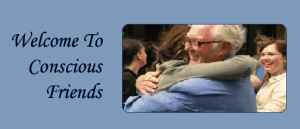 Tens of thousands of people visit The Conscious Living Foundation website. Married or single, male or female, youth or senior, we all appreciate having friends who share our common interest in personal and spiritual growth. As we learn and mature, many of us have realized that relationships are an important part of creating and maintaining a harmonious and uplifting life.
Tens of thousands of people visit The Conscious Living Foundation website. Married or single, male or female, youth or senior, we all appreciate having friends who share our common interest in personal and spiritual growth. As we learn and mature, many of us have realized that relationships are an important part of creating and maintaining a harmonious and uplifting life.
To that end, The Conscious Living Foundation is pleased to announce the formal launch of the Conscious Friends section of our website, in the hope that we all can find new like-minded friends, develop deeper relationships and work together to enhance our world.
Conscious Friends offers several excellent features designed to help us communicate with each other, including access to custom created profiles of spiritually oriented people, a wide range of stimulating and thought-provoking forums, public and private chat rooms, instant messaging and our own private and confidential internal email system.
However, the most valuable assets within Conscious Friends are the people who create the community. Even in its infancy, we have members from Croatia, Great Britain, Switzerland, India, South Africa, Nigeria, Canada, France, Mexico, New Zealand, Australia, Pakistan, Zimbabwe, Portugal, Oman and Norway, as well as all over the United States. And, our membership continues to grow every day. Don't miss this great opportunity to discover how wide-spread, optimistic and hopeful our global spiritual community really is.
Joined together we can create a world-wide Spirit village, a global community of high-minded individuals who can help uplift and serve each other and all our brothers and sisters hungry for a deeper meaning in their lives.
Membership is free, so we invite you to visit Conscious Friends and discover for yourself the great opportunities which await you - just click Here.
Appeal: We Depend On Your Donations -
The Conscious Living Foundation's only source of income is your donations and purchase of our products. If you enjoy our newsletter and website, if you receive inspiration and encouragement from our efforts, we urge you to make a donation to help sustain and grow this work.
By helping us, you are supporting the spiritual growth of the tens of thousands of people from all over the world, who regularly visit our website.
Click Here for more information. Thank you!
|
|
|
Please be assured that your email address will not be sold, rented
or given to any other organization or individual. We respect your privacy.
| News: Special 10% Discount For Newsletter Subscribers Only |
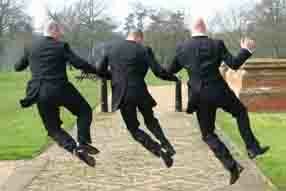 We know that many people throughout the world are experiencing increasing economic hardships. However, our desire for personal and spiritual growth does not stop regardless of economic conditions. We know that many people throughout the world are experiencing increasing economic hardships. However, our desire for personal and spiritual growth does not stop regardless of economic conditions.In our small way, to help with this dilemma, The Conscious Living Foundation is offering a 10% discount on all products we offer for sale through our catalog. This discount is only available to those who read this specific issue of our newsletter. CLF is not offering any other discounts of any kind at this time and will not renew this discount in upcoming issues of the newsletter. However there is no limit on the total amount of your purchase which will be subject to the discount. Regardless of your total purchase amount, 10% will be deducted. How To Get Your Discount Please note that this Discount Code can only be used a total of two times. So, be sure to take advantage of this discount opportunity to the greatest degree you are able, to maximize your discount. It is our hope that our CDs, Videos and other products will help provide the inspiration, guidance and hope you are seeking. Wishing you the best, as always, |
| Serial: A Romance of Two Worlds by Marie Corelli |
|
News: Special Discounts - Share The Spirit!
If you're considering buying a gift for a friend or loved one, why not select gifts that can genuinely make a difference in their lives? This time, give books, candle holders, incense, gift certificates, hand made soaps, videos, spoken word CDs or a huge variety of other products that will continue to inspire and encourage throughout the year. To view our entire catalog of products, click Here.
For a unique gift, you might consider purchasing a subscription to one of our daily inspirational emails - Conscious Word (a daily affirmation) or Conscious Wisdom (a daily quotation). For only $3.50 a month you will be bringing new hope and assurance into every day of the lives of your loved ones.
We make buying even easier with our Special Product discounts. We have collected together some of our most popular spoken word audio CDs at tremendous savings. Click Here to see our great selection of best sellers and favorites. They include audio versions of your all time favorites, perfect to listen to while driving or exercising.
Deepen your practice of the techniques that bring new joy and hope into your life - and give the gift of a deeper spiritual life and increased personal growth. Share the Spirit!
|
|
|
Please be assured that your email address will not be sold, rented
or given to any other organization or individual. We respect your privacy.
| News: Exploring The Free Downloads Library of The Conscious Living Foundation |
|
One of the most popular sections of our website is our Free Downloads Library. It is made up of several sections which are updated on a continuous basis. We have just added a large number of new items - especially in the E-Book and Video sections. (Click on any underlined words to go directly to that section):
E-Books
Titles include works by: James Allen, Emilie Cady, Catherine Ponder, Walter Lanyon, Charles Filmore, Wallace Wattles, Mary Baker Eddy, Florence Scovel Shin, Ernest Holmes, William Atkinson, Confucius, Aristotle, Henry David Thoreau, Herman Hesse, Signmund Freud, Ralph Waldo Trine, Thomas A Kempis, Rabindranath Tagore, Lao Tze, Paramahansa Yogananda, Krishnamurti, Kahlil Gibran, Buddha, Patanjali, Napoleon Hill, Mahatma Gandhi plus Literature by authors such as: Jules Verne, Mark Twain, Robert Louis Stevenson, a Sherlock Holmes Collection, Edgar Rice Burroughs, P.G. Wodehouse, Alexander Dumas, H.G. Wells, a Wizard of Oz Collection and hundreds of other titles!
(Lectures, Talks, Sermons, Recorded Comments, Classes and Workshops)
In addition, it contains recordings of works such as: The Book of Proverbs, The Game of Life by Florence Scovel Shin, The Prophet by Kahlil Gibran, The Imitation of Christ by Thomas A' Kempis, Practicing The Presence of God by Brother Lawrence, Pilgrim's Progress by John Bunyan, The Science of Getting Rich by Wallace Wattles, The Dialogs of St. Catherine of Siena and As a Man Thinketh and Byways To Blessedness by James Allen.
(Music and sounds from a variety of sources, styles and historical periods)
(Large variety of films and videos, historic and modern, documentary and talks)
Our Video section currently contains: The Ocean At Dusk - Guided Relaxation, A Biography of Mother Teresa, Meditation and Movement, Imagination Meditation, Laughter Meditation, Music for Meditation and Healing, A CNN Report on the Health Benefits of Meditation, A Biography of Mary Baker Eddy, A Man of God - An Interview with Leonard Ravenhill, Paramahansa Yogananda & Sri Yukteswar, Paramahansa Yogananda & Ramana Maharshi, Paramahansa Yogananda at Mt. Washington, Paramahansa Yogananda on a Walk In New York, Paramahansa Yogananda Demonstrating How To Sleep, Krishnamurti Talks on Freedom, Krishnamurti Talks on Life and Death, Krishnamurti Talks on Meditation and Krishnamurti Talks on World Suffering.
(Nature Pictures, Saints, Sages, Gurus, Mandalas, Chakras, Fine Art)
(Complete Plays, Radio Dramatizations, Books Read Aloud and Stories To Entertain The Entire Family - With a special collection for children)
Our audio classics are dramatic portrayals designed to primarily entertain, but with wholesome content that expresses positive values and that are suitable for the entire family to experience together. They include such titles as:
The Importance of Being Earnest, Treasure Island, A Tale of Two Cities, War of the Worlds, Abraham Lincoln, The Count of Monte Cristo, The Immortal Sherlock Holmes, Around The World In 80 Days, Pickwick Papers, Julius Caesar and Jane Eyre.
In addition, there is a special Children's Section containing dramatizations and readings especially created for younger children. They include such titles as: The Little Mermaid, Aladdin and the Wonderful Lamp, Jack and The Bean Stalk, Puss and Boots, Blue Beard, Thumbelina, Cinderella, Twas the Night Before Christmas, Snowdrop and the 7 Dwarves, Robin Hood, The Golden Fleece, Beauty and The Beast, Rapunzel, King Arthur, Hansel and Gretel, Sleeping Beauty, The Emperor's New Clothes, The Magic Carpet and many, many more!
(Large Beautiful Pictures with Inspirational Quotes Suitable To Place on The Background of Your Computer Desktop or Screensaver Program.)
The images in this section of the newsletter are a few of the selections contained in our Wall Paper Download Library. To read the inspirational inscriptions, visit us by clicking "Wall Paper" above.
|
Let's share the gifts for which we are most grateful:
joy, wisdom, love and the means to increase them in our lives.
Click Here for our special discounts.
|
|
For a collection of affirmations, click Here.
For a large variety of inspiring quotations, click Here.
Let's share the gifts for which we are most grateful:
joy, wisdom, love and the means to increase them in our lives.
Click Here for our special discounts.
|
Essay: Gratitude by Wallace D. Wattles
News: Conscious Money Circulation "Abundant Blessings"
Please be assured that your email address will not be sold, rented
|
||||||||||||
Let's share the gifts for which we are most grateful:
The Conscious Living Foundation is pleased to offer an original 2 CD recording of Kahlil Gibran's mystical masterpiece, "The Prophet". For complete details and samples from the recording, please click Here.
|
|
News: Two New Music CDs: "Soul Calls" and "Yoga Heart Healing"
|
|
YOGA HEART HEALING was created from the need to heal Anahata, the fourth chakra, considered the seat of universal love. Anahata is the color green. Our recording was created to support your practice of yoga, massage and other nurturing and healing activities.
Inspired by Dharma teachings from both Hindu and Buddhist wisdom, Yoga Heart Healing will open your heart chakra with its rich vibrant textures of soothing melodic transitions. - just click Here!
|
| Essay: How The 12 Step Programs Work (From The Original Text of "Alcoholics Anonymous") | ||||||
|
||||||
|
News: Philanthropic Youth Receives Award
|
|
News: New Audio CD - Embracing The Stillness - Lessons In Meditation
|
|
|
|
Please be assured that your email address will not be sold, rented
or given to any other organization or individual. We respect your privacy.
Let's share the gifts for which we are most grateful:
joy, wisdom, love and the means to increase them in our lives.
Click Here for our special discounts.
Essay: 12 Step Affirmations by Mark Bedillion
|
||||
|
If you enjoy our inspirational stories and articles, be sure to visit our website for more: Articles on Personal Growth, Health and Positive Change - Click Here.
|
Let's share the gifts for which we are most grateful:
joy, wisdom, love and the means to increase them in our lives.
Click Here for our special discounts.
We respect your time and privacy. If you would prefer not to receive any further communication from us, please click and we will immediately remove your name from our subscriber list and not attempt to contact you in the future.
All Contents Copyrighted, 2008, The Conscious Living Foundation